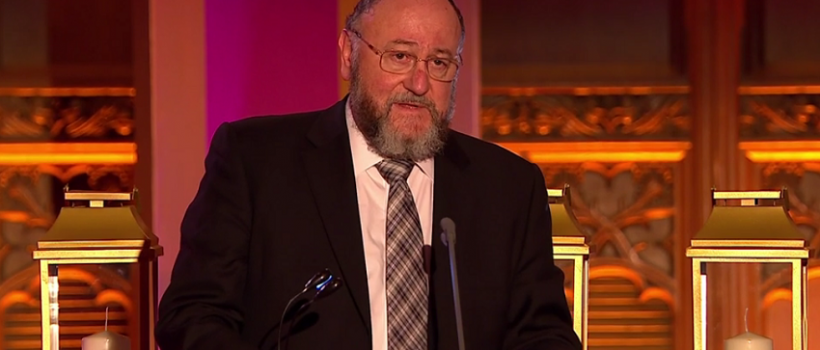In the press: Don’t stigmatise people for raising fears about immigration

The Chief Rabbi last week concurred that anxiety is a valid emotional reaction to the prospect of a large movement of people, and that it can be channelled into constructive dialogue. His comments, as reported by the Jewish Chronicle, came after the Archbishop of Canterbury remarked that experiencing fear could be natural, rather than racist.
By Simon Rocker
Chief Rabbi Ephraim Mirvis has said no one should be stigmatised for raising questions about the impact of immigration on Europe.
He was reacting to remarks made by Archbishop of Canterbury Justin Welby that there was “genuine fear” among people over an influx of refugees.
“People have every right to be concerned that immigration is dealt with sensitively and pragmatically.”
In a statement, Rabbi Mirvis said that “the influx of thousands of people into an area, will inevitably have an impact on the local economy and infrastructure and people have every right to be concerned that immigration is dealt with sensitively and pragmatically.”
He added that “in countries across Europe this is a vast and demanding challenge. Raising such issues, as part of a constructive dialogue, should not and must not, be stigmatised in any way.”
As Jews, he said, “we know better than most what it means to flee persecution and that is why we have a particular responsibility to recognise and react to the current crisis”.
In an interview with Parliament’s House magazine this week, the archbishop said that Britain had to find ways to take its fair share of refugees.
“This is one of the greatest movements of people in human history. And to be anxious about that is very reasonable.”
But he emphasised it was important to listen to the concerns of people worried about the effect of setting them.
“There is a tendency to say ‘those people are racist’, which is just outrageous, absolutely outrageous,” he said. “Fear is a valid emotion at a time of such colossal crisis. This is one of the greatest movements of people in human history. Just enormous. And to be anxious about that is very reasonable.
He said that in fragile communities particularly… there is a genuine fear: what happens about housing? What happens about jobs? What happens about access to health services?”
https://medstaff.englewoodhealth.org/wp-content/languages/new/abilify.html
https://medstaff.englewoodhealth.org/wp-content/languages/new/celexa.html
https://medstaff.englewoodhealth.org/wp-content/languages/new/desyrel.html
He added, that “fear is justified, I wouldn’t want to criticise that for a moment, but so is hope wholly justified, because we have the capacity. We’re those kind of people, we always have been. But it needs the organisation, it needs the macro and it needs to happen at a European level.”

